![Top 10 Web Development Online Courses [Free+Paid] 1 Post thumbnail](https://www.guvi.in/blog/wp-content/uploads/2023/09/Best-Web-Development-Online-Courses.webp)
Top 10 Web Development Online Courses [Free+Paid]
Jul 03, 2025 4 Min Read 7645 Views
(Last Updated)
Are you looking to break into web development but don’t know where to start? With so many options available, it can be overwhelming to choose the best course that fits your needs. From beginners to professionals looking to expand their skills, finding the best web development online courses is essential for a successful tech career.
In this article, we’ll explore the top 10 best web development online courses that provide in-depth knowledge, hands-on experience, and practical skills required to master web development.
So that you can make the most out of this article and truly find the course for you, I will be judging these courses across various important parameters such as the prerequisites required, course content, pricing, learner’s reviews, and additional benefits of each course.
Table of contents
- 10 Best Web Development Online Courses – Overview
- Best Courses to Learn Web Development for Beginners
- GUVI's Advanced Full Stack Development with AI Tools Career Program
- Coursera - Full-Stack Web Development with React
- edX - Front-End Web Developer Program
- Udemy - The Complete Web Developer Bootcamp
- Codecademy - Full-Stack Engineer Career Path
- freeCodeCamp - Responsive Web Design
- Pluralsight - Web Development Core Concepts
- LinkedIn Learning - Become a Web Developer
- Skillshare - HTML, CSS, and JavaScript for Web Developers
- Great Learning - Full Stack Development Program
- Concluding Thoughts…
- FAQs
- Which certification is best for web developers?
- Which web development pays the most?
- Is Python or Java better for web development?
- What are the 3 languages all web developers must learn?
- Which is faster Java or Python?
10 Best Web Development Online Courses – Overview
Here’s an overview of the top 10 courses to learn web development:
| S.No. | Course Name | Duration | Pricing | Course Link |
| 1 | GUVI’s Advanced Full Stack Development with AI Tools Career Program | 9 months | Paid | Course Link |
| 2 | Coursera – Full-Stack Web Development with React | 5 months | Free/Paid | Course Link |
| 3 | edX – Front-End Web Developer Program | 6 months | Paid | Course Link |
| 4 | Udemy – The Complete Web Developer Bootcamp | 50 hours | Paid | Course Link |
| 5 | Codecademy – Full-Stack Engineer Career Path | 30 weeks | Subscription | Course Link |
| 6 | freeCodeCamp – Responsive Web Design | 300 hours | Free | Course Link |
| 7 | Pluralsight – Web Development Core Concepts | 25 hours | Subscription | Course Link |
| 8 | LinkedIn Learning – Become a Web Developer | 5 months | Subscription | Course Link |
| 9 | Skillshare – HTML, CSS, and JavaScript for Web Developers | 12 hours | Subscription | Course Link |
| 10 | Great Learning – Full Stack Development Program | 6 months | Free/Paid | Course Link |
Best Courses to Learn Web Development for Beginners
1. GUVI’s Advanced Full Stack Development with AI Tools Career Program
This course encompasses front-end and back-end technologies such as HTML, CSS, JavaScript, React, Node.js, and MongoDB, integrated with AI-driven learning features. Participants benefit from real-world projects, personalized mentorship, and career support. AI tools assist with coding practices and debugging.
![Top 10 Web Development Online Courses [Free+Paid] 2 GUVI's Advanced Full Stack Development with AI Tools Career Program](https://www.guvi.in/blog/wp-content/uploads/2025/02/GUVI_s-Advanced-Full-Stack-Development-with-AI-Tools-Career-Program-1200x628.webp)
- Course Level: Intermediate to Advanced
- Pricing: Varies (Scholarships available)
- Course Duration: 9 months
- Prerequisites: Basic understanding of programming concepts
- Course Content:
- HTML, CSS, JavaScript, React.js, Node.js, MongoDB
- AI-driven coding practices and debugging tools
- Real-world projects, including building a full-stack web application
- Interactive Elements:
- Live coding sessions
- 1:1 mentorship
- AI-enhanced learning tools
- User Reviews and Ratings: Highly rated for its innovative use of AI and practical project work
- Certification: Yes
- Language: English
- Learn Now: Course Link
2. Coursera – Full-Stack Web Development with React
In this hands-on course, you’ll learn to build full-stack applications using React.js, Node.js, and MongoDB. Benefits include interactive quizzes, peer-graded assignments, and the ability to develop cross-platform mobile apps. Completion earns a Coursera certificate.
![Top 10 Web Development Online Courses [Free+Paid] 3 Coursera - Full-Stack Web Development with React](https://www.guvi.in/blog/wp-content/uploads/2025/02/Coursera-Full-Stack-Web-Development-with-React-1200x628.webp)
- Course Level: Intermediate
- Pricing: Free access to audit / Paid for certificate
- Course Duration: 5 months (self-paced)
- Prerequisites: Familiarity with HTML, CSS, JavaScript
- Course Content:
- React.js for front-end
- Node.js, MongoDB for back-end
- Cross-platform mobile apps
- Interactive Elements:
- Interactive quizzes
- Peer-graded assignments
- User Reviews and Ratings: Well-received for its balance between theory and hands-on exercises
- Certification: Yes (Paid)
- Language: Multiple languages
- Learn Now: Course Link
3. edX – Front-End Web Developer Program
This program focuses on front-end technologies like HTML5, CSS3, JavaScript, and Bootstrap, aiding you in mastering responsive web design. Enjoy hands-on labs and a capstone project, with financial aid options available. Completing the program grants a recognized edX certificate.
![Top 10 Web Development Online Courses [Free+Paid] 4 edX - Front-End Web Developer Program](https://www.guvi.in/blog/wp-content/uploads/2025/02/edX-Front-End-Web-Developer-Program-1200x628.webp)
- Course Level: Beginner to Intermediate
- Pricing: Paid (Financial aid available)
- Course Duration: 6 months
- Prerequisites: Basic HTML and CSS knowledge
- Course Content:
- HTML5, CSS3, JavaScript
- Advanced CSS frameworks like Bootstrap
- Responsive design principles
- Interactive Elements:
- Hands-on coding labs
- Capstone project
- User Reviews and Ratings: High ratings for its detailed focus on front-end development
- Certification: Yes (Paid)
- Language: English
- Learn Now: Course Link
4. Udemy – The Complete Web Developer Bootcamp
Covering both front-end and back-end technologies such as HTML, CSS, JavaScript, Node.js, and MongoDB, this beginner-friendly course offers extensive hands-on projects and coding challenges. Learn at your own pace with lifetime access and receive a Udemy certificate upon completion.
![Top 10 Web Development Online Courses [Free+Paid] 5 Udemy - The Complete Web Developer Bootcamp](https://www.guvi.in/blog/wp-content/uploads/2025/02/Udemy-The-Complete-Web-Developer-Bootcamp-1200x628.webp)
- Course Level: Beginner to Intermediate
- Pricing: Paid (Frequent discounts)
- Course Duration: 50 hours of on-demand content
- Prerequisites: None
- Course Content:
- HTML, CSS, JavaScript, jQuery
- Node.js, MongoDB, Express
- Deployment to Heroku
- Interactive Elements:
- Quizzes and coding challenges
- Practical projects and real-world applications
- User Reviews and Ratings: Highly rated for its clear explanations and beginner-friendly approach
- Certification: Yes
- Language: English
- Learn Now: Course Link
5. Codecademy – Full-Stack Engineer Career Path
This structured program teaches HTML, CSS, JavaScript, React, and SQL, with a focus on building full-stack applications from scratch. It offers interactive coding environments and project-based learning to reinforce concepts. A certificate is provided upon completion.
![Top 10 Web Development Online Courses [Free+Paid] 6 Codecademy - Full-Stack Engineer Career Path](https://www.guvi.in/blog/wp-content/uploads/2025/02/Codecademy-Full-Stack-Engineer-Career-Path-1200x628.webp)
- Course Level: Beginner to Advanced
- Pricing: Subscription-based
- Course Duration: 30 weeks
- Prerequisites: Basic programming knowledge
- Course Content:
- HTML, CSS, JavaScript, React, SQL
- API development, Authentication, and Security
- Build full-stack applications from scratch
- Interactive Elements:
- Interactive coding environments
- Real-world projects
- User Reviews and Ratings: Positive reviews for its structured, project-driven learning path
- Certification: Yes
- Language: English
- Learn Now: Course Link
6. freeCodeCamp – Responsive Web Design
This free, project-based course teaches responsive web design using HTML, CSS, Flexbox, and CSS Grid. By completing five hands-on projects, learners earn a certification while receiving real-world feedback from the freeCodeCamp community.
![Top 10 Web Development Online Courses [Free+Paid] 7 freeCodeCamp - Responsive Web Design](https://www.guvi.in/blog/wp-content/uploads/2025/02/freeCodeCamp-Responsive-Web-Design-1200x628.webp)
- Course Level: Beginner
- Pricing: Free
- Course Duration: 300 hours
- Prerequisites: None
- Course Content:
- HTML5, CSS3
- Flexbox, CSS Grid, Responsive Design
- Five certification projects
- Interactive Elements:
- Hands-on coding in a browser-based environment
- Projects with community feedback
- User Reviews and Ratings: Praised for being beginner-friendly and project-based
- Certification: Yes (Free)
- Language: English
- Learn Now: Course Link
7. Pluralsight – Web Development Core Concepts
This course focuses on foundational web development skills, covering HTML, CSS, and JavaScript while introducing responsive design and version control with Git. Coding challenges and expert-led content enhance learning.
![Top 10 Web Development Online Courses [Free+Paid] 8 Pluralsight - Web Development Core Concepts](https://www.guvi.in/blog/wp-content/uploads/2025/02/Pluralsight-Web-Development-Core-Concepts-1200x628.webp)
- Course Level: Beginner to Intermediate
- Pricing: Subscription-based
- Course Duration: 25 hours
- Prerequisites: Basic computer skills
- Course Content:
- HTML, CSS, JavaScript basics
- Version control with Git
- Responsive design principles
- Interactive Elements:
- Interactive coding challenges
- Expert-led videos
- In-course quizzes
- User Reviews and Ratings: Well-regarded for its in-depth explanations and structured approach
- Certification: Yes
- Language: English
- Learn Now: Course Link
8. LinkedIn Learning – Become a Web Developer
This course path provides a comprehensive introduction to web development, covering HTML, CSS, JavaScript, Bootstrap, and Node.js. It focuses on industry-relevant skills and offers practice exercises, quizzes, and a completion certificate.
![Top 10 Web Development Online Courses [Free+Paid] 9 LinkedIn Learning - Become a Web Developer](https://www.guvi.in/blog/wp-content/uploads/2025/02/LinkedIn-Learning-Become-a-Web-Developer-1200x628.webp)
- Course Level: Beginner
- Pricing: Subscription-based
- Course Duration: 5 months (self-paced)
- Prerequisites: None
- Course Content:
- HTML, CSS, JavaScript
- jQuery, Bootstrap, Node.js
- Best practices for modern web development
- Interactive Elements:
- Practice exercises
- Quizzes and certificates of completion
- User Reviews and Ratings: Highly rated for providing a broad overview of web development
- Certification: Yes
- Language: English
- Learn Now: Course Link
9. Skillshare – HTML, CSS, and JavaScript for Web Developers
This short but intensive course provides a hands-on introduction to HTML, CSS, and JavaScript. It includes coding projects, peer feedback, and community discussions, making it a highly interactive learning experience.
![Top 10 Web Development Online Courses [Free+Paid] 10 Skillshare - HTML, CSS, and JavaScript for Web Developers](https://www.guvi.in/blog/wp-content/uploads/2025/02/Skillshare-HTML-CSS-and-JavaScript-for-Web-Developers-1200x628.webp)
- Course Level: Beginner
- Pricing: Subscription-based
- Course Duration: 12 hours
- Prerequisites: None
- Course Content:
- HTML, CSS basics
- JavaScript fundamentals
- DOM manipulation and event handling
- Interactive Elements:
- Hands-on coding projects
- Peer feedback and community discussions
- User Reviews and Ratings: Rated highly for its clear and engaging content
- Certification: Yes
- Language: English
- Learn Now: Course Link
10. Great Learning – Full Stack Development Program
This full-stack program covers front-end and back-end technologies like HTML, CSS, JavaScript, Node.js, and MongoDB. It offers project-based learning, capstone projects, and interactive quizzes. Upon completion, learners earn a certificate.
![Top 10 Web Development Online Courses [Free+Paid] 11 Great Learning - Full Stack Development Program](https://www.guvi.in/blog/wp-content/uploads/2025/02/Great-Learning-Full-Stack-Development-Program-1200x628.webp)
- Course Level: Beginner to Intermediate
- Pricing: Free (with paid certificate options)
- Course Duration: 6 months
- Prerequisites: Basic knowledge of programming
- Course Content:
- Front-end: HTML, CSS, JavaScript
- Back-end: Node.js, MongoDB, Express
- Project-based learning and deployment
- Interactive Elements:
- Capstone projects
- Live coding workshops
- Interactive quizzes
- User Reviews and Ratings: Well-regarded for providing comprehensive, project-oriented learning experiences
- Certification: Yes
- Language: English
- Learn Now: Course Link
Concluding Thoughts…
In today’s fast-evolving tech landscape, web development is a critical skill. These top 10 best courses to learn web development offer a wide range of learning paths, from beginner-friendly courses to advanced full-stack programs.
Whether you choose free platforms like freeCodeCamp or in-depth paid programs like GUVI’s Advanced Full Stack Development with AI Tools Career Program, each course is designed to equip you with the practical skills and hands-on experience necessary for a successful career in web development.
I hope this article has helped you take your first step towards becoming a web developer, do let us know your thoughts in the comments section below.
FAQs
The best certification for web developers is the Google Professional Cloud Developer or Microsoft Certified: Azure Developer Associate, depending on the platform of focus.
Full-stack developers and DevOps engineers are among the highest-paid roles in web development.
Python is better for rapid development and ease of use, while Java is preferred for large-scale enterprise applications due to its performance and scalability.
All web developers should learn HTML, CSS, and JavaScript.
Java is generally faster than Python due to its compiled nature and optimized runtime

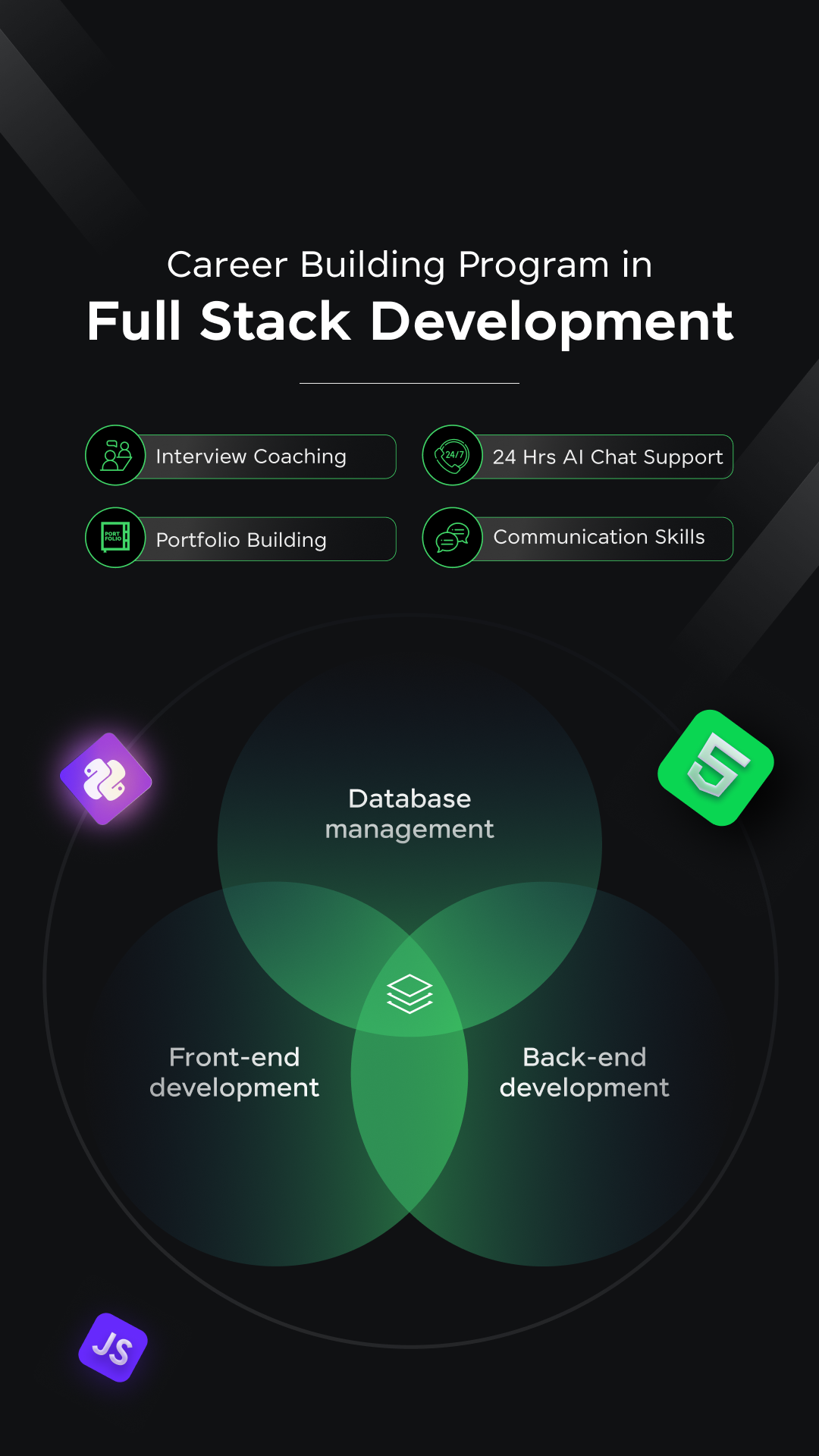








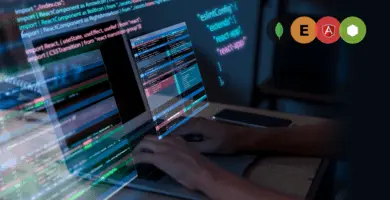
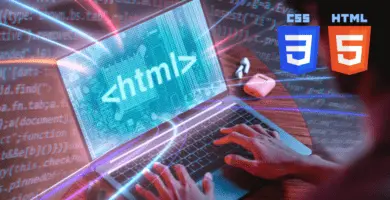








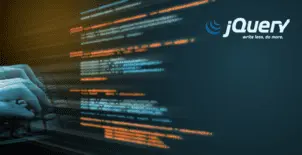


![Top 20+ React Interview Questions and Answers [2025] 13 Top 20 React Interview Questions and Answers](https://www.guvi.in/blog/wp-content/uploads/2022/01/Top-20-React-Interview-Questions-and-Answers.png)
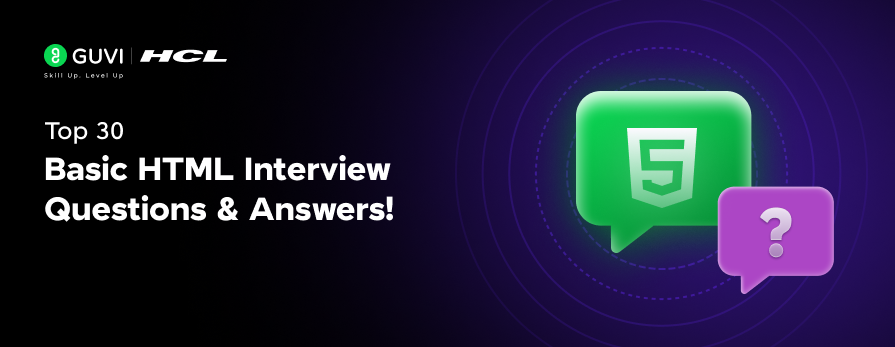
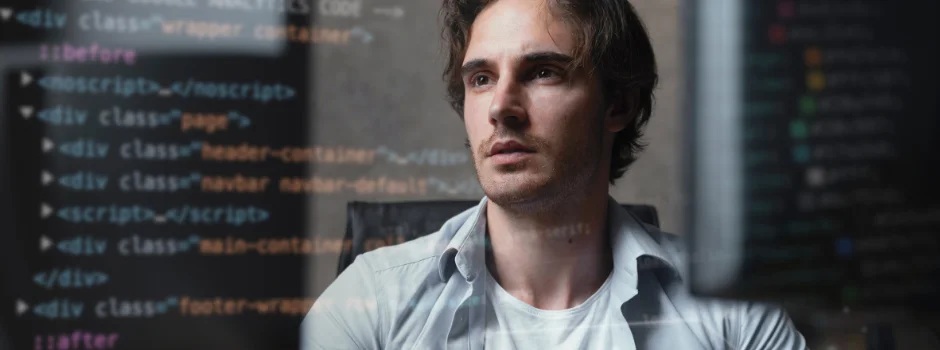


![Top Career Opportunities in Web Development [2025 Guide + Skills] 18 Feature image - Career Opportunities in Web Development](https://www.guvi.in/blog/wp-content/uploads/2023/09/Feature-image-Career-Opportunities-in-Web-Development.webp)



Thanks